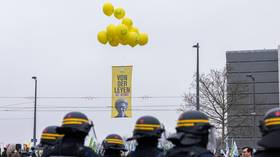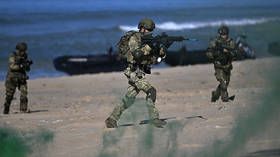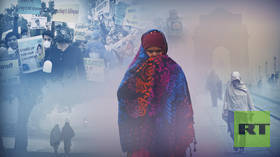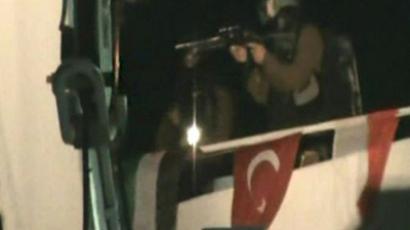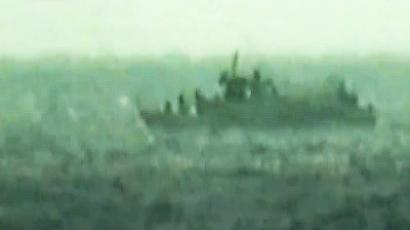War-torn Libya last resort for jobless Gazans
Israel’s blockade of Gaza has left thousands jobless with two in three locals living in poverty. The situation is so desperate that even Libya, fresh from a bloody civil war, is being seen as a land of opportunity by over 5,000 Palestinians.
Thousands of desperate and unemployed Gazans hope that war-torn Libya can offer them respite from the hardships of war on their doorstep.“We don’t have any source of income. Prisoners are in better conditions than us. That’s why people want to run away from here,” Sami Ed, an unemployed Gazan, told RT’s Paula Slier. Queues to get into the battered North African country are long, but full of hope – more than 5,000 people have already signed up for work in Libya.“I am happy to do any type of work there, it doesn’t make a difference, just to get some income so my children can survive,” another jobless Gazan, Yasser Salman, explained to RT. The United Nations puts unemployment in Gaza at 45 per cent. Two in three Gazans live in poverty, and every year, the Ministry of Labor says another 30,000 people join the ranks of the jobless.Ever since Israel imposed a siege on Gaza nearly five years ago, the private sector has all but ground to a halt.“The economy in Gaza is dependent on Israel. It’s the way Israel set it up,” Saker Abu Hein, Hamas’ Assistant Minister for Labor, explained to RT. “All the materials we need for industry and construction have to come from Israel, through Israeli ports and airports. We have no direct relationship with the outside world.”Before the Palestinian uprising in 2000, tens of thousands of Gazans worked in Israel. The largest border crossing between Israel and Gaza once saw lots of people flowing through, but now only a handful of trickle out each day. Nael al Keishawy was a painter and once earned about US $30 a day – enough for his family to survive on. But has hasn’t been able to cross the border for seven years, and with no work this side, his children often go to bed hungry.He was one of the first to sign up when a call went out for people interested in going to Libya. “I don’t care if it’s Libya or not. I’m ready to go to Mars for the sake of getting food for my children. I can’t give them more than 20 cents a day to survive on. Can you imagine that?” he asks.Hamas says Israel promised to lift the blockade on Gaza as part of a recent prisoner exchange that freed Gilad Shalit, an Israeli soldier held by Hamas for five years. But Israel says it made no such promise.“Israel still controls the trade, sea, air. People in Gaza are not allowed to go or to trade freely with the outside world. Israel is the main cause for the siege in Gaza. Israel’s government did not deny that,” economic analyst Omar Shaban told RT. Israel says the siege is for security reasons and is afraid that materials like cement and steel could be used to build weapons and military fortifications.RT’s Paula Slier says the recent flare-up of violence between Israel and Gaza has done little to ease the situation. On the contrary, many now fear that, far from lifting the siege, Israel will tighten it. And as long as the blockade remains in place, there is little hope for an improvement in the lives of Gazans and the flood of economic migrants seeking work in Libya – and elsewhere – is likely to continue.







